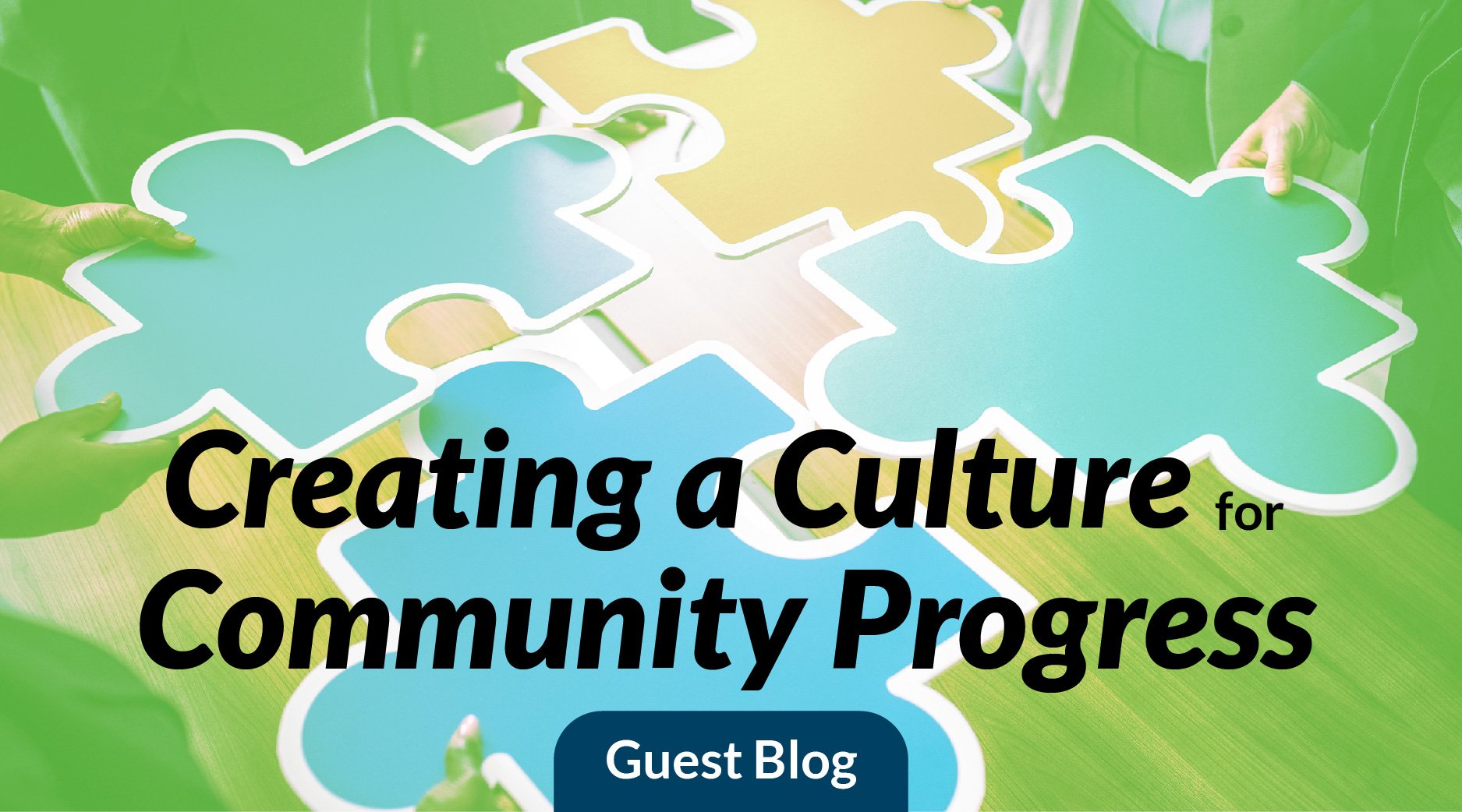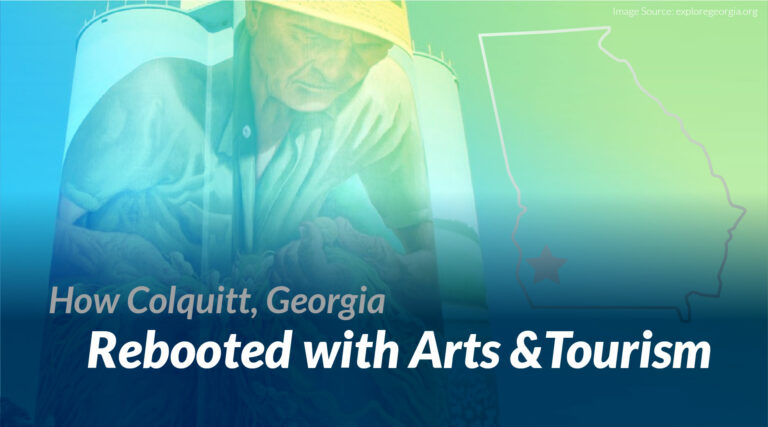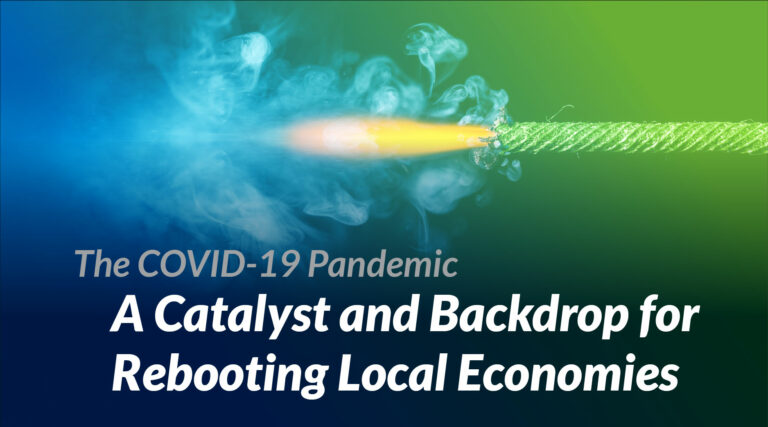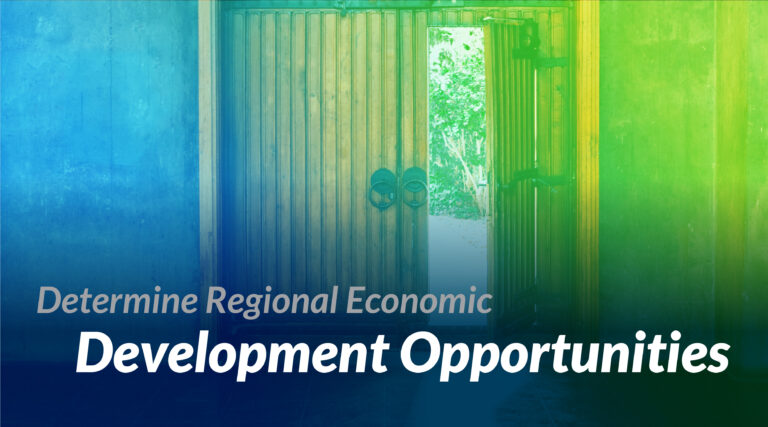We’re not talking about the “culture” of museums and concert halls, but rather the beliefs and attitudes that residents have concerning their communities. While people obviously have their individual opinions, common experiences lead to shared beliefs. For example, residents in communities that have experienced significant economic downturns can develop a pessimistic “hang-dog” attitude about prospects for the future. A “we can’t” as opposed to a “we can” attitude can make residents skeptical about plans and programs for community and economic development progress.
What can communities do to help create a positive culture to support progress? Captain Alan Price and his Life Wings group offer a useful perspective on this question from their work with organizations on change management. Their premise: leadership must act proactively to ensure that any organization’s culture is consistent with its goals and vision. This concept has important implications for elected officials and community and economic development professionals.
The Results Accelerator
(Alan Price, Life Wings LLC)
It’s all about the culture! How many times have we heard that expression with little or no detail about how that translates into action and results in an organization? Let’s take a page out of the book Change the Culture, Change the Game by Tom Smith and Roger Connors to examine this idea more closely.
Cultural management within an organization is no longer just desirable, it is essential. The external situation or environment facing any organization changes. The first order of business is to create an adaptive culture to cope not only with change, but also with the pace of change. While we experience culture in a collective sense, true change is very personal and occurs one person at a time. Real, effective change moves up and down an organization – from management and employees.
Change is about making things become different. Smith and Connors present a model of change with their Results Accelerator Pyramid composed of four levels:

Results or goals at the top of the pyramid are established and refined by leaders often without input from those whose task it is to achieve them.
When results fall short of expectations, leadership seeks to change the Actions that led to subpar performance without fully appreciating that the fundamentals which lead to positive change have been left unchanged.
People act in ways that are consistent with their Beliefs. However, beliefs within an organization are heavily based on Experiences which either reinforce beliefs or change them to be consistent with experiences. Culture is a term often used to describe the beliefs and experiences of an organization.
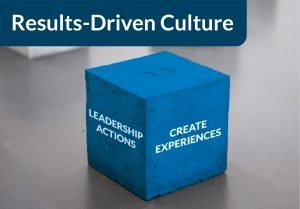 The challenge is to align the desired results and actions to achieve them at the top of the pyramid with the beliefs and experiences at the bottom. As the desired results and actions change, so must the beliefs and experiences – or culture – of an organization. This is the challenge facing every leadership team. Leaders in many organizations think and work only in the top half of the Results Accelerator Pyramid, but organizations that achieve excellence leverage the lower half. Failure to address beliefs and experiences is in fact failure.
The challenge is to align the desired results and actions to achieve them at the top of the pyramid with the beliefs and experiences at the bottom. As the desired results and actions change, so must the beliefs and experiences – or culture – of an organization. This is the challenge facing every leadership team. Leaders in many organizations think and work only in the top half of the Results Accelerator Pyramid, but organizations that achieve excellence leverage the lower half. Failure to address beliefs and experiences is in fact failure.
The bottom line: to get a culture that drives key results and achieves goals faster in an organization, leaders must prescriptively create the culture they need. This they can do only by investing their effort in leadership actions that intentionally create experiences that produce deeply held convictions.

- How would you describe the “culture” of your community? Is it aligned with the community and economic development goals and desired results?
- How can elected officials, community and economic development professionals and others influence or change a community’s culture? How can they better align the beliefs and experiences of a community with community and economic development goals and required actions?
We look forward to your input. Have some thoughts to the questions and content above? Feel free to post them in the comments below. Please feel free to post your title and organization in the field. Your email will not be displayed.
About Captian Alan W. Price
 Alan Price has extensive experience in the commercial aviation industry as a pilot and manager. He was Chief Pilot for Delta Airlines’ Atlanta base of over 3,000 pilots, and helped lead Delta through the difficult days following the 9/11 disaster. Since retiring from Delta he has served as a leadership, safety and crisis management consultant to a broad spectrum of industries. He holds a BS in Engineering Science from the USAF Academy and a Master’s Degree in Decision Science from Georgia State University. Capt. Price resides in Lakemont, GA where he is actively involved in local community and economic development efforts.
Alan Price has extensive experience in the commercial aviation industry as a pilot and manager. He was Chief Pilot for Delta Airlines’ Atlanta base of over 3,000 pilots, and helped lead Delta through the difficult days following the 9/11 disaster. Since retiring from Delta he has served as a leadership, safety and crisis management consultant to a broad spectrum of industries. He holds a BS in Engineering Science from the USAF Academy and a Master’s Degree in Decision Science from Georgia State University. Capt. Price resides in Lakemont, GA where he is actively involved in local community and economic development efforts.
![2021 Prosperous Places Logo [TM]](https://www.prosperousplaces.org/wp-content/uploads/2021/02/20210205_JI_PPTM-Logo.png)
